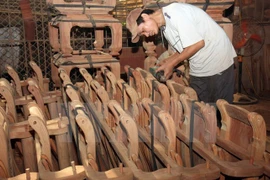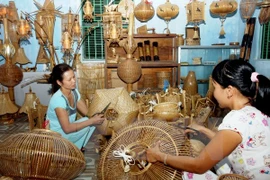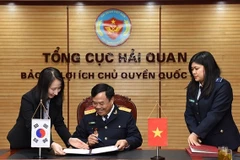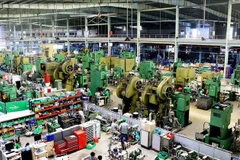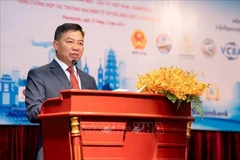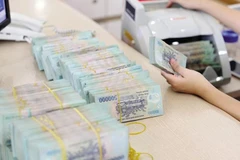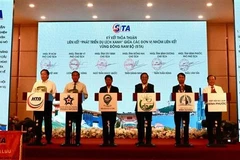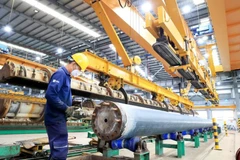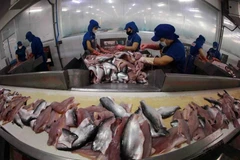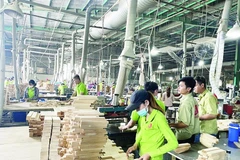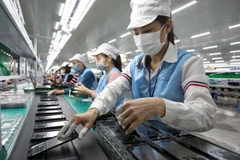 Filip Graovac, Asia Foundation deputy country representative in Vietnam, speaks at the seminar (Photo: VNA)
Filip Graovac, Asia Foundation deputy country representative in Vietnam, speaks at the seminar (Photo: VNA) HCM City (VNA) - Vietnamesehandicraft firms need to make greater efforts to meet the requirements offoreign buyers, said participants at a seminar in HCM City on April 11.
Speaking at the Improving Sector Standards andPractices for Export Products in Vietnamese Handicraft Sector, Le Ba Ngoc,deputy chairman of the Vietnam Handicraft Exporters Association(VietCraft), said foreign importers increasingly require their suppliers tomeet the sectors standards on quality, corporate social responsibility, andenvironment.
A survey of 100 international buyers done byVietCraft with funding from the Australian Government found that 75 percent ofimporters wanted their suppliers to comply with standards in the next fiveyears, he said.
“If we do not meet standards, we will find ithard to export our products.”
Filip Graovac, Asia Foundation deputy countryrepresentative, said: “These requirements put enormous pressure on handicraftproducers to devise means of keeping their costs low while also meeting the newrequirements of buyers, and at the same time creating an opportunity for theseproducers to raise their capacity to meet international standards.”
The Asia Foundation implemented a project fundedby the Australian Government to support VietCraft to raise sector standards andpractices.
This was done through a series of activitiesincluding research into international standards; development of a manual oninternational compliance criteria with special focus on ceramics, lacquer ware,rattan, and bamboo; support for handicraft enterprises with improvement plansincluding design and marketing; and policy advocacy for further complianceinitiatives among other handicraft products with exporters, businessassociations, and relevant government agencies.
“However, the number of the internationalcompliances keeps increasing over time, and together with the already lengthyand complicated sets of standards, this is causing difficulties for small- andmedium-sized companies to use it in diagnosing their actual situation anddesigning potential improvement plans,” Graovac said.
The Asia Foundation has supported VietCraft todigitise the international compliances as well as sector standards into businesscompliance software. The software content is a comprehensive library ofinternational compliances and sector standards consolidated by the projectexperts who are also business practitioners from the handicrafts sector.
The user-friendly software would not onlyprovide handicraft enterprises an online tool to determine their status, butalso create opportunities for them to discuss with and acquire technicalassistance from other experts and practitioners, he said.
Ngoc said the association regularly organisestraining courses and provides consultancy to help enterprises comply with thestandards.
Talking about the difficulties in complying withthe standards, he said nearly 70 percent of firms complain that they do nothave enough trained staff for the purpose. "Therefore, training humanresources is the first thing they need to do," he said.
"Lack of resources for implementing thecompliances is another problem," he said.
Nguyen Huy Thong, deputy director of Ngoc Dong HaNam Co Ltd, a handicrafts company, said the compliance costs are high as firmsneed to earmark money for fire prevention, health checks for workers, wastetreatment, and more.
Delegates at the seminar learnt how to use thenew business compliance software to measure their present level of compliance.
The workshop is the last activity under aproject to build VietCraft’s capacity and raise sector standards and practices.
Vietnam earned more than 650 million USD fromexports of handicrafts in the first three months of the year.
The full-year figure is expected to top 2.1billion USD.-VNA
